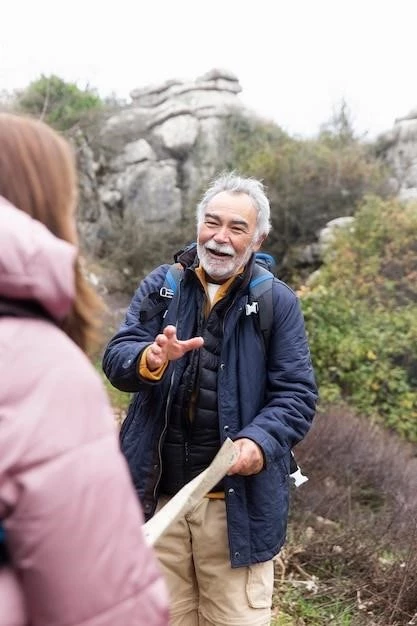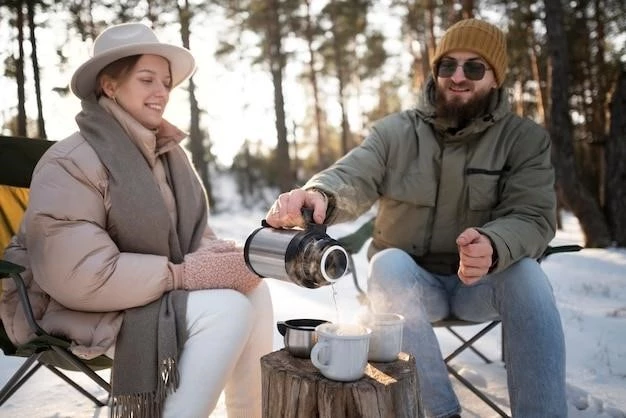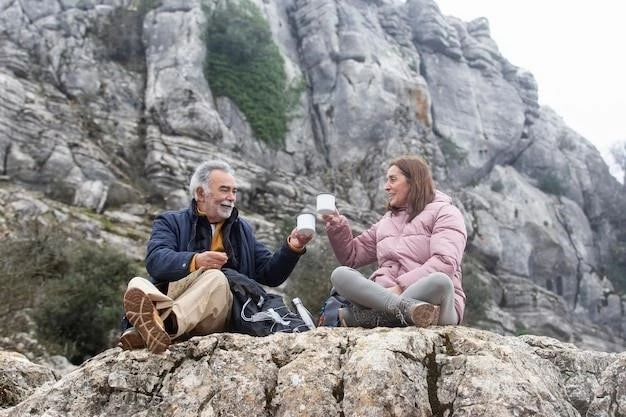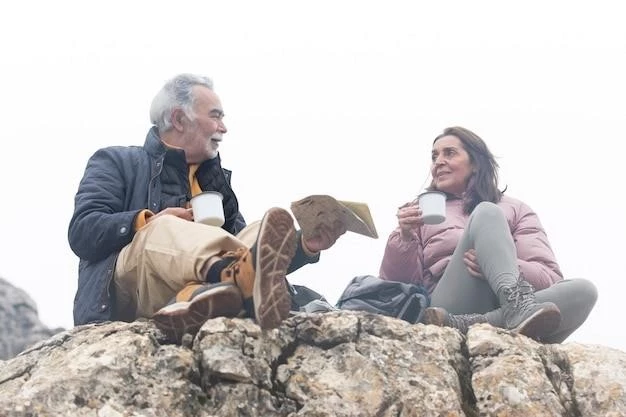Top Destinations for Adventure Travelers Over 50
The adventure travel industry is booming, and mature explorers are leading the charge! Whether you’re seeking cultural immersion, physical challenges, or breathtaking landscapes, 2024 offers a world of possibilities․ Trending destinations٫ according to the Adventure Travel Trade Association٫ include:
- The Mediterranean: From the Greek Isles to the Italian coastline, explore ancient ruins, savor delicious cuisine, and soak in the sun-drenched beauty․
- Western Europe: Hike the picturesque trails of the Alps, cycle through charming villages in France, or cruise the scenic rivers of Germany․
- Scandinavia: Immerse yourself in the Nordic culture, witness the Northern Lights, and embrace the great outdoors․ Consider Bornholm, a Danish island in the Baltic Sea known for its rocky cliffs, lush forests, and pristine beaches․
- Northeast Asia: Discover the vibrant cities, ancient traditions, and stunning natural landscapes of Japan, South Korea, and beyond; Witness the iconic cherry blossoms in Japan or explore the temples of Bhutan․

Best Adventure Travel Companies for Seniors
Choosing the right travel company can make all the difference in ensuring a safe, enjoyable, and enriching adventure․ Here are some of the top-rated adventure travel companies catering to the needs and interests of mature travelers:
Adventures Abroad
Consistently ranked among the best in the industry, Adventures Abroad has been crafting exceptional travel experiences for over three decades․ Recognized by both National Geographic and Travel Leisure for their commitment to quality and senior-friendliness, they offer a wide range of small-group tours led by expert guides․ From the Australian Outback to the cherry blossom festivals of Japan, Adventures Abroad can turn your travel dreams into reality․
Overseas Adventure Travel (O․A․T․)
True to its name, O․A․T․ specializes in immersive and active adventures for mature travelers, with a primary focus on those aged 50 and above․ Their small-group tours, capped at 16 participants, emphasize cultural engagement, authentic experiences, and off-the-beaten-path exploration․ With a wide array of destinations spanning all corners of the globe, O․A․T․ ensures enriching journeys for discerning adventurers․
Road Scholar
Formerly known as Elderhostel, Road Scholar stands as a pioneer in educational travel for seniors․ They offer a diverse range of programs, from history and archaeology tours to wildlife expeditions and cultural immersion experiences․ With a focus on learning and personal growth, Road Scholar provides intellectually stimulating adventures for curious minds of all ages․
Intrepid Travel
Known for their responsible and sustainable tourism practices, Intrepid Travel offers a wide range of small-group adventures designed to connect travelers with local cultures and environments․ Their itineraries often feature off-the-beaten-path destinations, unique accommodations, and opportunities to interact meaningfully with local communities․ Intrepid’s commitment to responsible travel aligns perfectly with the values of many mature explorers․
Backroads
As the leader in active travel, Backroads caters to those seeking physical challenges and breathtaking scenery․ Their biking, hiking, and multi-adventure trips cater to various fitness levels and offer unparalleled access to some of the world’s most stunning landscapes․ Backroads provides an excellent option for active seniors looking to challenge themselves physically while exploring new horizons․
Globus
With a legacy spanning over 90 years, Globus has perfected the art of guided tours․ They offer a diverse range of itineraries, from classic European explorations to exotic adventures in far-flung corners of the world․ Globus tours provide a comfortable and convenient way to experience new destinations, with a focus on iconic landmarks, cultural highlights, and well-planned itineraries․ Their emphasis on scheduled activities and free time provides a balanced approach for senior travelers․
When selecting a travel company, consider your interests, budget, preferred travel style, and desired activity level․ Researching companies’ safety records, experience, and commitment to responsible tourism is crucial for a rewarding and fulfilling adventure․ With so many reputable companies specializing in senior travel, you’re sure to find the perfect fit for your next great adventure․
Planning Your Adventure: Essential Tips for Mature Travelers
Embarking on an adventure after 50 is an exhilarating experience․ To ensure your trip is enjoyable and rewarding, meticulous planning is essential․ Here are some key tips to guide your planning process:
Consult Your Physician
Before booking any trip, especially one involving physical activity, schedule a check-up with your doctor․ Discuss your travel plans, any pre-existing medical conditions, and necessary vaccinations or medications․ This proactive approach ensures you are healthy and prepared for the journey ahead․
Choose the Right Adventure
With numerous adventure travel options available, selecting one aligning with your interests, physical capabilities, and comfort level is crucial․ Assess your fitness level honestly․ Opt for activities and itineraries that excite you without exceeding your physical limits․ Remember, adventure comes in many forms, from leisurely cultural explorations to more physically demanding treks․
Research and Book in Advance
Thorough research is key to a successful adventure․ Explore various destinations, activities, and tour operators․ Consider factors like climate, local customs, and accessibility․ Booking in advance, especially for popular destinations or during peak seasons, secures your spot and often comes with early-bird discounts․
Pack Light and Smart
Packing strategically enhances your travel experience․ Choose versatile, comfortable clothing suitable for various activities and weather conditions․ Pack essential medications in their original packaging, along with copies of prescriptions․ Comfortable walking shoes are a must for most adventures․ A lightweight backpack proves invaluable for carrying essentials during day trips․
Stay Informed and Connected
Before departure, research your destination thoroughly․ Familiarize yourself with local customs, etiquette, and basic phrases in the local language․ Inform your bank and credit card companies of your travel plans to avoid any issues with transactions abroad․ Consider a portable Wi-Fi device or local SIM card to stay connected with loved ones and access essential travel information․
Pace Yourself
One of the joys of traveling after 50 is the freedom to set your own pace․ Don’t overschedule your itinerary․ Allow ample time for relaxation٫ exploration٫ and unexpected detours․ Listen to your body and take breaks when needed․ Remember٫ the goal is to enjoy the journey٫ not just the destination․
Embrace Flexibility
While thorough planning is essential, remain adaptable to unforeseen circumstances․ Weather delays, itinerary changes, or unexpected opportunities are all part of the adventure․ Embrace these moments with a positive attitude and a sense of humor․ Flexibility enhances your ability to fully appreciate the unexpected turns your journey may take․
By following these tips, you can embark on your adventure well-prepared, informed, and ready to embrace the incredible experiences that await․ Remember, adventure travel after 50 is about exploring new horizons, challenging yourself, and creating lasting memories․

Staying Safe and Healthy on Your Adventure
While embracing adventure travel after 50 is exhilarating, prioritizing your health and safety throughout your journey is paramount․ By taking proactive measures, you can minimize risks and ensure a smooth and enjoyable experience․
Maintain a Healthy Lifestyle
Prior to your departure, focus on maintaining a healthy lifestyle․ Engage in regular exercise to build stamina and endurance, adapt to different time zones more easily, and enhance your overall well-being․ Eat a balanced diet rich in fruits, vegetables, and whole grains to boost your immune system and provide sustained energy for your adventures․
Pack a Comprehensive First-Aid Kit
A well-stocked first-aid kit is indispensable for addressing minor injuries or ailments․ Include essentials like bandages, antiseptic wipes, pain relievers, antihistamines, motion sickness medication, sunscreen, insect repellent, and any personal medications․ If you have specific medical needs, consult your doctor for recommendations on additional supplies․
Stay Hydrated and Eat Wisely
Dehydration can quickly sap your energy and impact your well-being, especially in warmer climates․ Carry a reusable water bottle and refill it frequently throughout the day․ When choosing meals, opt for fresh, locally sourced options whenever possible․ Be mindful of food sanitation practices, especially in developing countries․
Respect Local Customs and Laws
Before you travel, take time to research and understand the local customs and laws of your destination․ Dress respectfully, be mindful of social etiquette, and avoid behaviors that might be considered offensive․ Familiarize yourself with local traffic regulations if you plan on driving․
Practice Sun Safety
Protect yourself from harmful UV rays by wearing sunscreen with a high SPF, even on cloudy days․ Wear a wide-brimmed hat and sunglasses for added protection․ Seek shade during the hottest parts of the day, particularly if engaging in outdoor activities․
Be Aware of Your Surroundings
Maintain a heightened sense of awareness of your surroundings, especially in crowded areas or unfamiliar environments․ Safeguard your belongings, be cautious of pickpockets, and avoid displaying expensive jewelry or electronics․ Use reputable transportation services and be wary of strangers offering unsolicited assistance․
Stay Connected and Informed
Keep your loved ones informed of your itinerary and provide them with emergency contact information․ Check in with them regularly to reassure them of your well-being․ Stay updated on local news and weather reports, and heed any safety advisories issued by local authorities or your embassy․
By prioritizing your health and safety, you can fully embrace the transformative power of adventure travel while minimizing potential risks․ Remember, a well-planned and cautious approach allows you to savor every moment of your journey with peace of mind․

Travel Insurance for Seniors: What You Need to Know
Traveling after 50 often brings exciting adventures, but it’s crucial to have adequate travel insurance to protect yourself from unexpected events that can disrupt your trip and lead to significant expenses․ Here’s what senior travelers need to know about travel insurance:
Why Travel Insurance Is Essential for Seniors
As we age, we may encounter more health issues, making travel insurance even more critical․ Here’s why:
- Medical Emergencies: Travel insurance covers medical expenses abroad, including hospitalization, surgery, and emergency medical evacuation․ This is especially vital for seniors who may have pre-existing conditions that could lead to complications while traveling․
- Trip Cancellation/Interruption: Unexpected events like sudden illness, a family emergency, or natural disasters can force you to cancel or cut short your trip․ Travel insurance can reimburse you for non-refundable trip costs;
- Lost or Stolen Belongings: Travel insurance can cover lost, stolen, or damaged luggage, travel documents, and personal belongings, providing financial reimbursement and peace of mind․
- Pre-Existing Conditions Coverage: Many standard travel insurance policies offer limited or no coverage for pre-existing medical conditions․ Look for policies specifically designed for seniors or those with pre-existing conditions to ensure adequate protection․
Key Coverage Considerations for Seniors
When selecting a travel insurance policy, pay close attention to these coverage aspects:
- Medical Expenses: Ensure sufficient coverage for medical emergencies, including hospitalization, surgery, and medical evacuation back home if necessary․
- Pre-Existing Conditions: Carefully review the policy’s terms regarding pre-existing conditions․ Look for policies that offer “waiver of pre-existing condition exclusions” if you meet specific criteria․
- Emergency Evacuation: Verify coverage for emergency medical evacuation to your home country in case of a serious illness or injury․
- Trip Cancellation/Interruption: Understand the covered reasons for trip cancellation or interruption and the reimbursement limits․
- 24/7 Assistance Services: Choose a policy that provides 24/7 assistance services٫ including emergency medical assistance٫ travel arrangements٫ and legal referrals․
Tips for Choosing the Right Policy
- Compare Quotes: Obtain quotes from several reputable travel insurance providers to compare coverage options and prices․
- Read the Fine Print: Thoroughly review the policy wording, including coverage limits, exclusions, and claim procedures․
- Disclose Pre-Existing Conditions: Be honest and upfront about any pre-existing medical conditions when applying for coverage․ Failure to disclose can result in claim denial․
- Consider Annual Plans: If you travel frequently, an annual travel insurance plan may be more cost-effective than purchasing individual policies for each trip․
By securing comprehensive travel insurance, senior travelers can embark on their adventures with confidence, knowing they have a safety net in place should the unexpected occur․

Budgeting for Your Adventure Trip
Planning an adventure trip after 50 is an exciting endeavor, and budgeting wisely ensures you can fully embrace the experience without financial stress․ Here’s a comprehensive guide to help you budget effectively for your next adventure:
Determine Your Travel Style and Priorities
Your travel style and priorities significantly influence your budget․ Are you looking for luxurious accommodations and fine dining, or do you prefer budget-friendly options like hostels and local eateries? Identifying your must-haves and areas where you’re willing to be flexible helps allocate funds accordingly․
Research Destinations and Travel Costs
Destination choice significantly impacts overall expenses․ Research destinations with varying costs of living and travel expenses․ Consider factors like airfare, accommodation, meals, transportation, activities, and visa fees․ Online travel resources and budgeting apps can provide valuable insights into average costs․
Explore Off-Season Travel and Discounts
Traveling during the shoulder seasons (spring and fall) or off-season can yield significant savings on airfare, accommodations, and tours․ Additionally, look for senior discounts, travel deals, and package offers that can reduce overall expenses․
Set a Realistic Budget and Track Expenses
Establish a realistic budget based on your research and financial situation․ Break down your budget into categories like transportation, accommodation, meals, activities, and souvenirs․ Utilize budgeting apps or spreadsheets to track expenses diligently and ensure you stay within your allocated limits․
Consider Alternative Accommodation Options
Explore alternative accommodation options beyond traditional hotels, such as vacation rentals, bed and breakfasts, or even home-sharing platforms․ These options often provide more space, amenities, and local experiences at a lower cost․
Embrace Local Cuisine and Transportation
Dining at local restaurants and markets is an excellent way to experience authentic cuisine while saving money compared to tourist-oriented establishments․ Similarly, utilize public transportation or walking tours instead of relying solely on taxis or private transportation for a more budget-friendly approach․
Factor in Hidden Costs and Emergencies
Remember to factor in hidden costs, such as travel insurance, visa fees, airport taxes, and tips; Allocate a contingency fund for unexpected expenses or emergencies that may arise during your trip․
Save Strategically and Plan Ahead
Start saving for your adventure trip well in advance to alleviate financial strain․ Consider setting aside a specific amount each month dedicated to your travel fund․ Planning and booking flights and accommodations early often results in better deals and peace of mind․
By following these budgeting tips, you can embark on your adventure with confidence, knowing you’ve planned financially sound and can fully embrace the experience without overspending․
Packing Essentials for Adventure Travel Over 50
Packing strategically for adventure travel after 50 ensures you’re well-prepared for diverse activities and weather conditions while keeping your luggage manageable․ Here’s a comprehensive list of packing essentials:
Clothing: Choose Versatility and Comfort
- Moisture-Wicking Clothing: Pack lightweight, breathable shirts, pants, and underwear made from moisture-wicking fabrics like merino wool or synthetic blends․ These materials help regulate body temperature and dry quickly, keeping you comfortable during active pursuits․
- Layering Options: Pack a variety of layers to adapt to changing weather conditions․ A fleece jacket, lightweight down vest, and waterproof outer shell provide warmth and protection from the elements․
- Comfortable Footwear: Pack sturdy, supportive walking shoes or hiking boots suitable for varied terrain․ Break them in before your trip to prevent blisters․ Consider packing a pair of comfortable sandals or water shoes for warmer climates or water activities․
- Swimsuit and Cover-up: Even if your itinerary doesn’t revolve around water activities, pack a swimsuit and cover-up for unexpected opportunities to take a dip in a pool, hot spring, or ocean․
- Sun Protection: Pack a wide-brimmed hat, sunglasses with UV protection, and a lightweight scarf or bandana for neck protection․ These items shield you from the sun’s harmful rays during outdoor adventures․
Gear and Accessories: Enhance Convenience and Safety
- Daypack: A comfortable daypack is essential for carrying water, snacks, a camera, and other essentials during day trips and excursions․ Choose one with adjustable straps and breathable back support․
- Reusable Water Bottle: Stay hydrated throughout your adventures by packing a reusable water bottle․ Look for one with a built-in filter if you’re traveling to areas with questionable water quality․
- First-Aid Kit: A well-stocked first-aid kit is crucial for addressing minor injuries or ailments․ Include bandages, antiseptic wipes, pain relievers, antihistamines, motion sickness medication, and any personal medications in their original packaging․
- Travel Adapter: If you’re traveling internationally, pack a universal travel adapter to ensure you can charge your electronic devices․
- E-reader or Books: Pack a lightweight e-reader or a few good books for downtime during travel or relaxation at your destination․
Medications and Essential Documents: Prioritize Health and Safety
- Medications: Pack a sufficient supply of all medications in their original packaging, along with copies of your prescriptions․ Carry a list of your medications, dosages, and your doctor’s contact information․
- Travel Insurance Documents: Pack your travel insurance policy documents and keep them easily accessible in case you need to make a claim․
- Passport and Visas: Ensure your passport is valid for at least six months beyond your intended stay and obtain any necessary visas well in advance․ Make copies of these documents and store them separately from the originals․
By packing strategically, you’ll have everything you need for a comfortable and enjoyable adventure, allowing you to focus on creating lasting memories․

Solo vs․ Group Travel for Seniors
When planning an adventure after 50, one of the first decisions is whether to embark on a solo journey or join a group tour․ Both options offer unique advantages and cater to different travel preferences and personalities․ Here’s a comprehensive comparison to help you decide which approach aligns best with your needs:
Solo Travel: Embrace Independence and Flexibility
Solo travel offers unparalleled freedom and flexibility․ You’re in complete control of your itinerary, pace, and budget․ You can linger longer at attractions that pique your interest, detour on a whim, and fully immerse yourself in local experiences at your own pace․ It’s an opportunity for self-discovery, personal growth, and embracing spontaneity․
Advantages:
- Unmatched Freedom and Flexibility: Set your own schedule, explore at your own pace, and change plans on a whim․
- Opportunities for Self-Discovery: Solo travel encourages introspection, self-reliance, and personal growth․
- Immersive Cultural Experiences: Traveling alone often leads to more authentic interactions with locals and a deeper understanding of local cultures․
Considerations:
- Safety Concerns: Solo travelers, particularly women, may face increased safety risks․ Take extra precautions and research destinations thoroughly․
- Loneliness: Extended solo travel can lead to feelings of loneliness or isolation․ Stay connected with loved ones and engage with locals․
- Logistical Challenges: Planning and navigating transportation, accommodation, and activities can be more demanding for solo travelers․
Group Travel: Shared Experiences and Camaraderie
Group tours provide a sense of camaraderie and shared experiences with like-minded travelers․ They offer the convenience of pre-arranged itineraries, transportation, and accommodations, allowing you to relax and enjoy the journey․ Group tours often include expert guides who provide valuable insights into destinations, cultures, and history․
Advantages:
- Shared Experiences and Camaraderie: Connect with fellow travelers who share similar interests and create lasting memories together․
- Convenience and Ease of Travel: Benefit from pre-arranged itineraries, transportation, and accommodations, minimizing logistical hassles․
- Expert Guidance: Experienced tour guides offer valuable insights into destinations, cultures, and history, enhancing your understanding and appreciation․
Considerations:
- Limited Flexibility: Group tours follow pre-set itineraries with limited opportunities for spontaneous detours or independent exploration․
- Group Dynamics: Traveling with a group involves navigating different personalities and preferences, which may require compromise and flexibility․
- Cost: Group tours can be more expensive than independent travel, especially for smaller groups or specialized itineraries․
Ultimately, the best choice between solo and group travel depends on your personal preferences, travel style, and the specific adventure you seek․ Weigh the advantages and considerations carefully to make an informed decision that aligns with your vision for an unforgettable journey․










